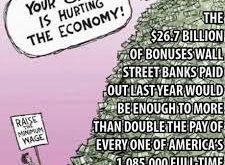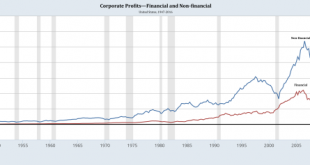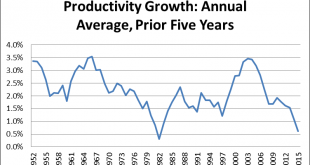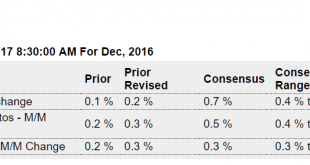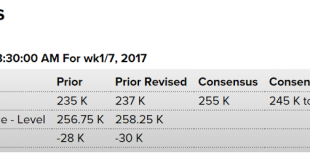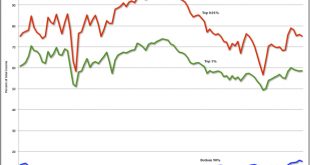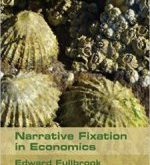from Asad Zaman Even though very few people have more than a vague idea about them, macroeconomic theories deeply affect the lives of everybody on the planet. Writings of Piketty, Stiglitz and many others, as well as personal experience of the 1% — 99% divide, have created increasing awareness of the deep and increasing inequalities which characterize modern capitalist economies. However, the link between inequality and macroeconomic theory has not been pointed out clearly. The fact that...
Read More »Makers vs. takers?
from David Ruccio Like many liberal economic nationalists, who are concerned about both inequality and economic growth, Michael Lind attempts to make a distinction between “takers” and “makers.” As against conservative economic nationalists, who blame immigrants and the welfare-dependent poor, Lind focuses his attention on the “rent-extracting, unproductive rich” for undermining the dynamism and fairness of contemporary capitalism. The term “rent” in this context refers to more than...
Read More »Weak labor market: President Obama hides behind automation
from Dean Baker It really is shameful how so many people, who certainly should know better, argue that automation is the factor depressing the wages of large segments of the workforce and that education (i.e. blame the ignorant workers) is the solution. President Obama takes center stage in this picture since he said almost exactly this in his farewell address earlier in the week. This misconception is repeated in a Claire Cain Miller’s NYT column today. Just about every part of the story...
Read More »Retail sales, Business inventories, Consumer sentiment, China exports, German GDP
Less than expected and held up by vehicle sales which were about flat for the year and are unlikely to be any better than that in 2017, and therefore not contributing anything to growth: Highlights Outside of cars, consumers weren’t in much of a spending mood this holiday season. Retail sales did post a very solid gain in December, up 0.6 percent, but without autos the gain falls to only 0.2 percent. And exclude gasoline as well, which isn’t really a common holiday gift, and...
Read More »Putney Debates and The Trump Adminstration
from Peter Radford Here’s a well known quote: “For really I think that the poorest he that is in England hath a life to live, as the greatest he; and therefore truly, sir, I think it’s clear, that every man that is to live under a government ought first by his own consent to put himself under that government … and I do think that the poorest man in England is not bound in a strict sense to that government that he hath not had a voice to put himself under.” Thus spoke Colonel Rainsborough...
Read More »To What Extent Is Economics an Ideology and to What Extent Is It a Useful Theory?
By Philip Pilkington, a macroeconomist working in asset management and author of the new book The Reformation in Economics: A Deconstruction and Reconstruction of Economic Theory. The views expressed in this interview are not those of his employer Ever since the Enlightenment many societies have moved away from justifying their existence and formulating their aims through recourse to religious language. Gone are the days of the ‘Great Chain of Being’ which justified the natural and...
Read More »US budget gap, Jobless claims, Retail employment, Rail cars
Seems revenues continue to fall indicating the two years of deceleration of growth may have already gone below 0, and with unemployment claims a lot harder to get that source of transfer payments seems to have been reduced, reducing what otherwise would have been that much counter cyclical deficit spending: US Budget Gap Doubles in December The US government reported a $28 billion budget deficit in December, a 94.4% increase from a $14.4 billion gap a year earlier and...
Read More »Indignity of not-work?
from David Ruccio Mainstream economists and economic commentators continue to invoke the so-called “dignity of work” to criticize the idea of a universal basic income. It’s an argument I’ve dealt with before (e.g., here and here). As I see it, there’s nothing necessarily dignified about most people being forced to have the freedom to sell their ability to work to a tiny group of employers. The idea may be intrinsic to capitalism—but that doesn’t mean it contributes to the dignity of...
Read More »Fake pluralism
As a means of fending off criticism of its autism, of further concealing its ideological role (see below), of diverting calls for pluralism and, perhaps most of all, just as a pastime, economics’ Neoclassical mainstream plays a game of relaxing the assumptions. It loosens one or two assumptions around the edges of the theory and then does a bit of analysis. This is no better than when viewing David to lean to the left or to the right or kneel or stand tiptoed as a means of seeing another...
Read More »Tectonics and Growth
from Peter Radford My wife is reading Kahneman’s “Thinking Fast and Slow”, somewhere in which he relates his reaction when he first came across the bedrock of mainstream economics: rational microeconomic behavior. I must admit I had a very similar reaction. The description of human behavior that underpins modern economics is so bizarre that my first thought was that it must be some form of Monty Pythonesque satire. Surely, I thought, this is a joke and in a few pages all will be revealed....
Read More » Heterodox
Heterodox

